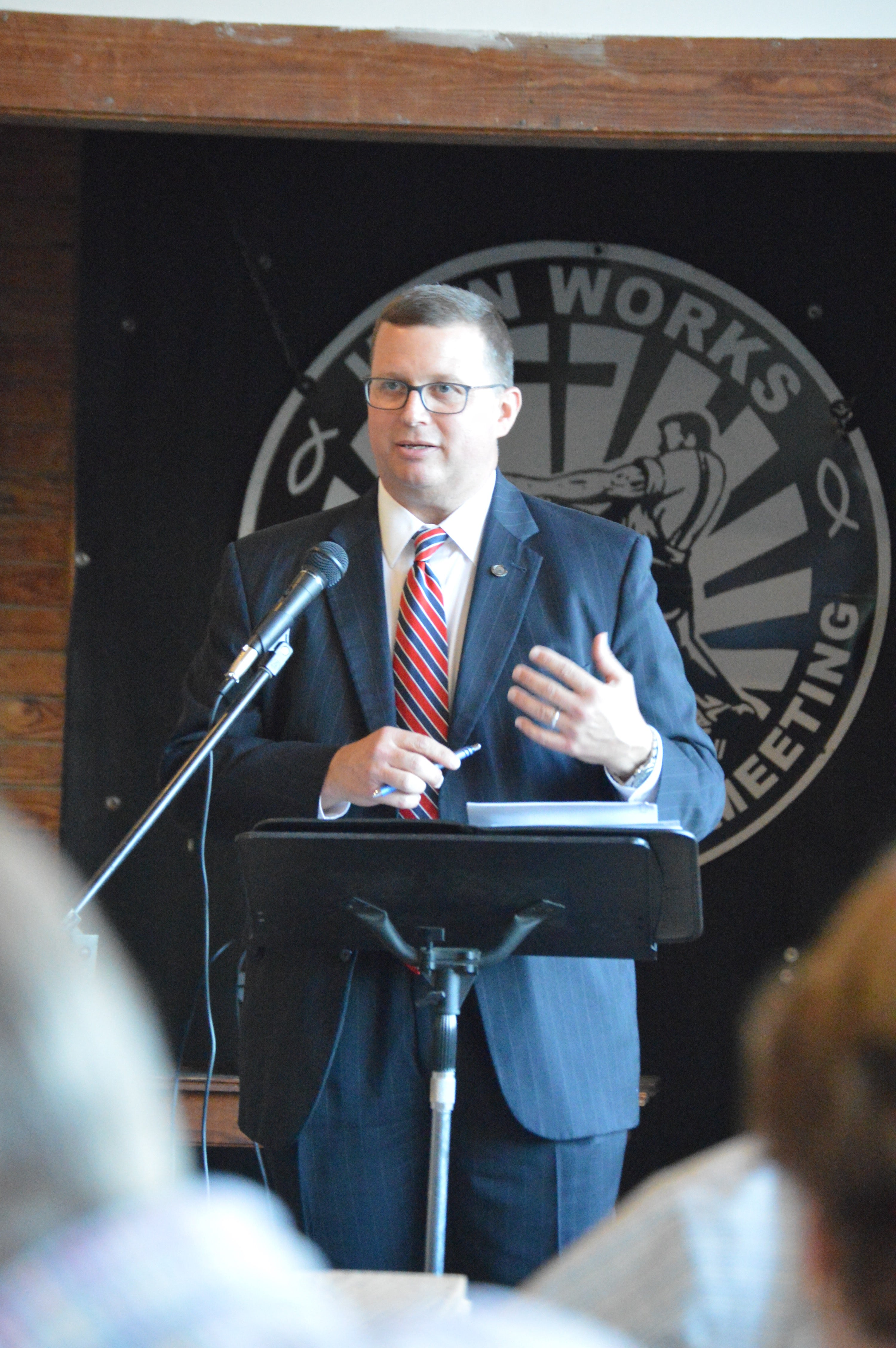Rep. Mike Jones holds town hall meeting in Libertyville
Published 12:00 am Thursday, September 26, 2019
|
Getting your Trinity Audio player ready...
|
Residents of the town of Libertyville had the opportunity to hear first hand what went on in the past legislative session and how it is going to affect the county from Rep. Mike Jones yesterday at a town hall meeting held in Libertyville.
Jones said the legislative session was one of the busiest he has ever been in.
“We had 28 regular session days out of a possible 30,” Jones said. “We also had a special session immediately following the beginning of the regular session. It was the first time that I have been apart of legislation where a special session ran through regular session.”
Jones said the coming up legislative session should be active right out of the gate.
“The beginning of the next regular session is going to be Feb. 4, 2020,” Jones said. “A lot of preparation is already happening behind the scenes. I think you will see that this next regular session is one where a lot of bills are going to be dropped from the start.”
In the past session, Jones said the house filed 643 bills, the senate filed 427 with a combined 1,070 bills dropped during the session. Last year, only 922 bills were dropped.
“It is a very large number, but it is not unusual,” Jones said. “The first year of every four-year cycle tends to have the most volume of bills. Frankly, a lot of them don’t get very far.”
Jones said 367 bills from the past session went to the governor’s desk to be signed. As far as total bills and resolutions signed by the governor, there were 540.
The state general fund for FY2020 is $2.192 billion, which is up $132 million from last year’s fund.
“That is extremely unusual,” Jones said. “Since I have been in office that is one of those, ‘It never happens’ occurrences. As far as the Educational Trust Fund, it is at $7.126 billion. That is up $492 million from last year. That is an enormous increase. If you look at the state and look at our country, we are doing better. People are more confident in our economy.”
Out of all the money that the state takes in, Jones said 52.7 percent goes to education, 5.7 percent goes to transportation, 4.6 percent goes to corrections and 2.7 percent goes to mental health.
“Those are the top five where our money is going,” Jones said. “You can say different things and have your priorities set differently, but those are things you have to have. It appears to me that we are putting our money in the right spot.”
One of the big issues that Jones brought up was the Rebuild Alabama Act.
“We have not made an increase in our investment in our roads and bridges since 1993,” Jones said. “The big issue has always been distrust of where the money went. The thing with this bill and why we went into a special session is because of the oversight and transparency of how that progressed. It states that it has to be used for the roads and for the bridges. There are a number of audits that have to take place before and after the project is complete. The purpose of that is to make sure that the project is for roads and bridges. There is a lot of work that went into the bill to make sure that the money is going to be spent where it needs to be spent.”
Most of the citizens were concerned as to how the money was split up between the municipalities.
Jones said the distribution percentage and the ratio of population affects how much money is distributed to the municipalities.
The amount of money each municipality in Covington County will receive from the 10-cent gas tax increase is:
- Covington County – $860,708
- Andalusia – $50,642
- Babbie – $16,422
- Carolina – $15,177
- Florala – $22,023
- Gantt – $14,872
- Heath – $15,002
- Horn Hill – $14,896
- Libertyville – $14,444
- Lockhart – $16,068
- Onycha – $14,717
- Opp – $41,058
- Red Level – $15,950
- River Falls – $16,108
- Sanford – $14,949





